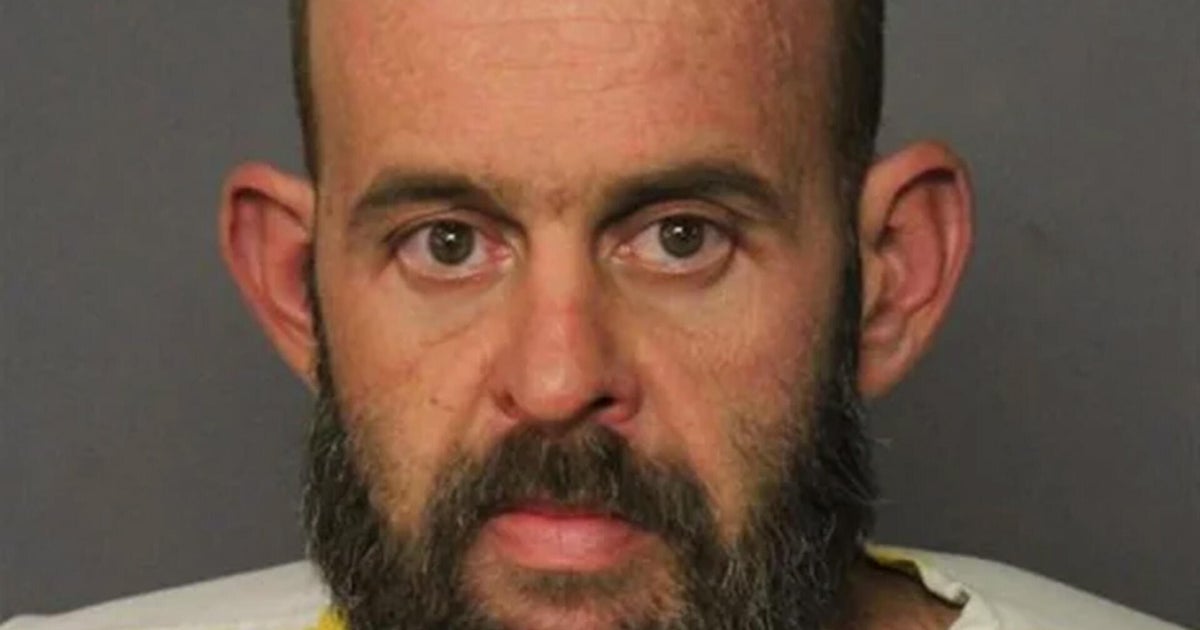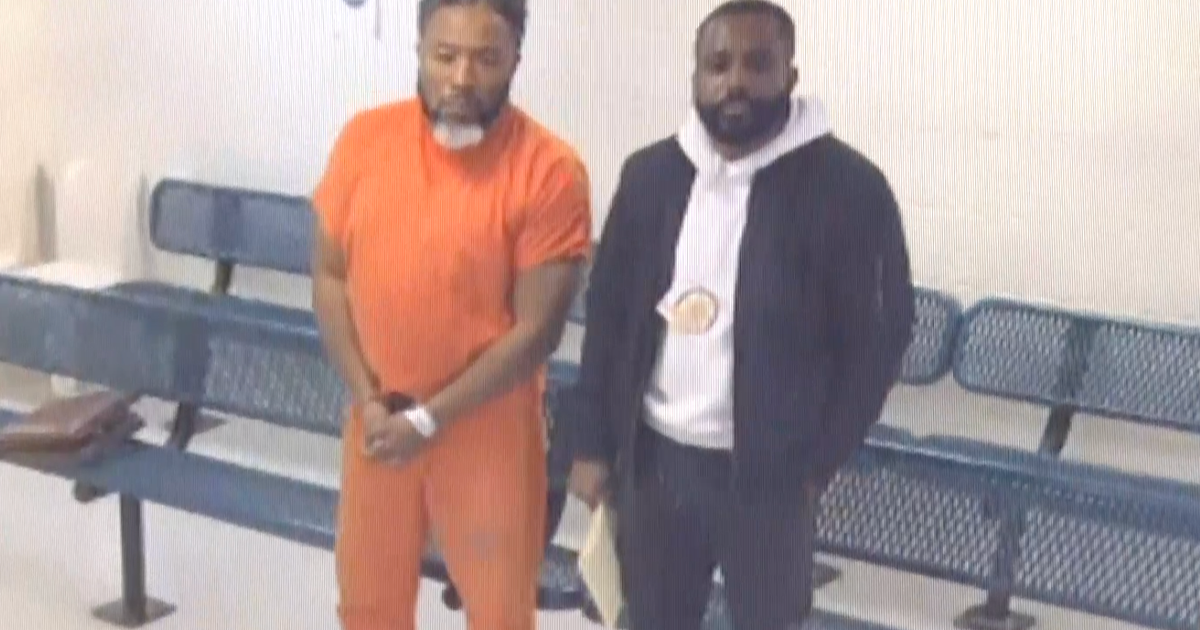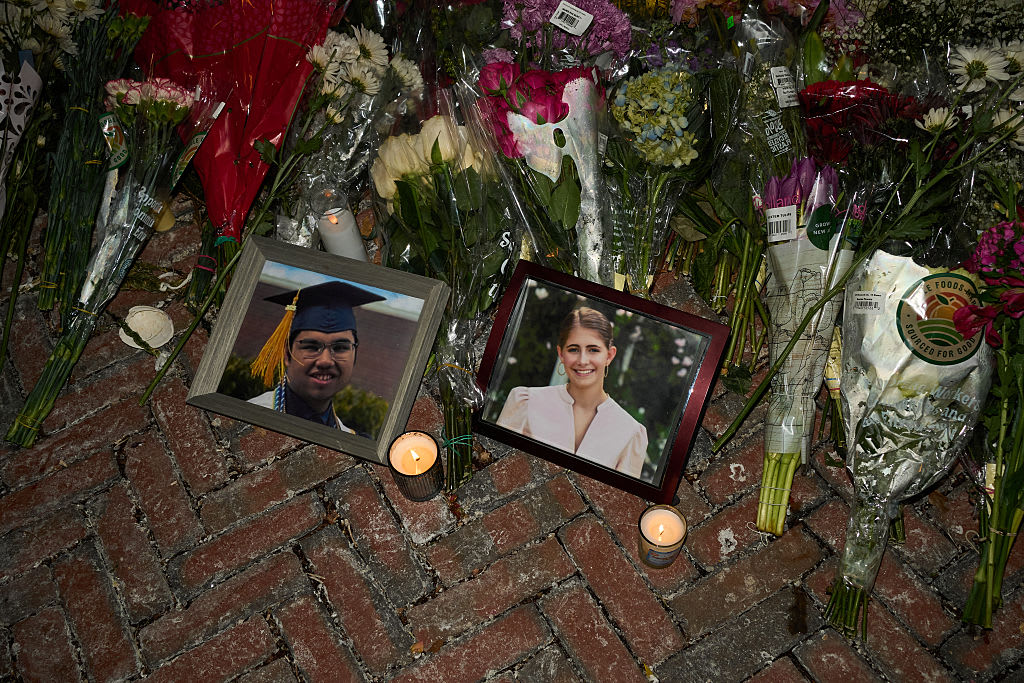Judge reportedly denied protection orders for woman cops say was killed by ex
ARDMORE, Ala. -- A man with a history of domestic violence killed himself after using a rifle to kill three other people including his ex-wife, who had complained in court documents that he was harassing her, sheriff's officials in Alabama said Monday. A judge had reportedly twice denied her requests for protection from abuse orders.
Darwin Brazier, 43, died of a self-inflicted gunshot wound in Limestone County on Sunday. Earlier, Brazier's ex-wife Debra Hartley Rivera and two other people were found dead at a house in Ardmore.
Authorities identified the other two victims as Rivera's current husband, Radex Rivera, 41, and their roommate, Timothy James Hayword-Boger.
Officers were alerted after a woman told a dispatcher she had received a text message from Brazier saying he had just killed his ex-wife and the others and that he was going to kill himself, according to a news release from Limestone County Sheriff Mike Blakely's office.
Officers found the bodies of the three people on the back porch of the house where they lived, the release said, and evidence showed about 30 rounds were fired from a rifle.
Brazier later shot himself with a handgun near his home when confronted by officers, the statement said.
"This was an unnecessary and unfortunate escalation of what appears to be a long-term history of domestic violence," Blakely said in the statement.
Rivera and Brazier divorced in 2005 but reconciled after the divorce and had two daughters, now 11 and 5, the Decatur Daily reports, citing court documents. Limestone County Sheriff's spokesman Stephen Young told CBS affiliate WHNT the office has a history of calls to the home from the time when the former couple lived together. The two reportedly became involved in a custody dispute, and Limestone County Circuit Judge B. Chadwick Wise on Dec. 17 granted custody of the girls to Rivera and gave Brazier visitation rights.
Rivera claimed in court papers filed last year that Brazier had stalked her, stolen from her, threatened to take the girls and had another man harass her. She petitioned Wise for a protection from abuse order on March 14, 2017, the paper reports, including a request that Brazier be required to surrender any firearms. Wise reportedly denied the petition March 31.
Earlier this year, she wrote in another petition for a protection from abuse order that Brazier was upset that she had remarried, and that he was following her and threatening her and her new husband.
"He calls my husband threatening to hurt both of us. (He) drives by my house all hours of day to check where I am," she wrote in a complaint filed March 1, obtained by WHNT and the Decatur Daily. "He is upset I am now married and don't want to be with him. He has been physical in the past, pulled a gun on me. … I know he has anger toward me and in past has caused physical pain to me."
Rivera said in the petition that Brazier stalked her and called her so often that she had to change her phone number, the Decatur Daily reports.
Wise granted the protection request on a temporary basis, but on April 10 denied her request for a permanent order that would have made Brazier subject to federal laws banning his access to guns. According to the paper, the ruling came after a hearing at which Brazier was represented by an attorney and Rivera represented herself. In a court filing, a lawyer for Brazier said he denied "each and every" allegation made by Rivera.
In Alabama, anyone who is a victim of domestic abuse or believes they could become a victim is eligible to file for a protection from abuse order, according to WomensLaw.org. A judge can issue a temporary protection order if he or she believes it's necessary to protect the petitioner or their children, according to website.
The temporary order can be issued without the alleged abuser present and without a full court hearing. The order will protect the petitioner until a scheduled hearing, typically within 10 days. The alleged abuser must be served with documents notifying them of the scheduled court hearing.
The alleged abuser then has the right to be present and testify at the scheduled hearing. The petitioner can also testify and present witnesses or evidence at the hearing before a judge rules.
A protection from abuse order will do little to stop a person who is determined to kill, according to Susan Keilitz, principal court research consultant with the National Center for State Courts. But, she says, it can benefit victims in many cases. Violating the orders in itself is a crime, which can act as a deterrent against further abuse.
"For the vast majority of cases a protective order has the value of the system telling the abuser to stop," said Keilitz, who has studied the effectiveness of civil protection orders. "It sets up enough parameters around his or her behavior to reduce the abuse and give the victim a chance to get away."
Keilitz says she can't comment on the specifics of Rivera's case -- and the judge may have been presented with more information during the April 10 hearing -- but she said the allegations of stalking should have made Rivera eligible for a protection from abuse order under Alabama law. She says she can't see an apparent reason why it wouldn't have been granted.
Wise did not return a call for comment from CBS News' Crimesider.





